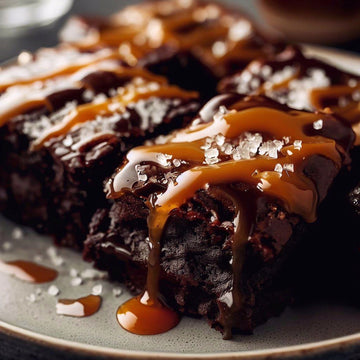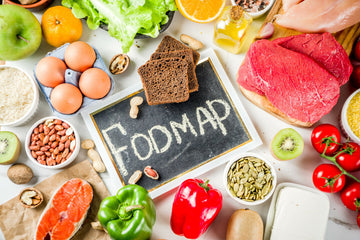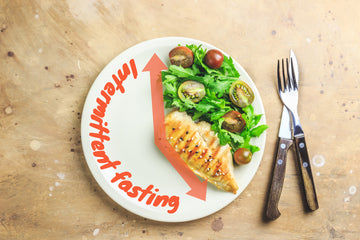ProCare Health Products: Heating Protein & Calcium Supplements
by Brenda Hoehn on Jun 22, 2023


ProCare Health Products: Heating Protein & Calcium Supplements
Who said taking your vitamins and supplements can be a chore?
Managing a strict diet and supplement regimen after bariatric surgery may seem like an unappealing trade-off to achieve a healthy body and soul. But it doesn’t have to be!
There are endless delicious, fun, and nutritious ways to conveniently sneak supplements into daily meals and snacks, staving off meal and snack boredom, meal-prep stress, and powerful urges to stray from your diet.
Please keep reading to learn how to upgrade your favorite recipes with our ProCare Health protein and calcium supplements, satisfying their daily nutritional goals AND taste buds.
Avoiding Malnutrition Post-Bariatric Surgery
The clinically-required post-bariatric surgery dietary supplement and vitamin regimen is vital for combatting limited daily food intake and nutrient malabsorption, which are primary results of surgical alterations, including:
- Reducing Stomach Size.
- Bypassing Part of the Small Intestine.
To support your nutritional needs, you must take a daily bariatric multivitamin with additional vitamin and mineral support ( this varies from person to person), especially when it comes to vital nutrients that are available through the foods we eat, like calcium and protein!
Baking and cooking with calcium and protein supplements is a perfect way to reach daily nutritional goals. But heat can impact the supplements’ efficacy.
Please use this blog to learn how heat impacts our ProCare Health products, so you can confidently incorporate them into your favorite recipes.
How Does Heat Alter Calcium?
Individuals with a calcium deficiency are at a much higher risk of developing osteoporosis, resulting in muscle aches and weakness and an increased risk of fractures.
When baking/cooking with calcium, know that the high temperatures will decrease calcium’s potency. The higher the temperature, the faster the potency drops.
Example: Calcium Potency Loss (Raw Form)
- 1 Hour at 250°F = 1/5 Decrease in Potency
- 1 Hour at 350°F = 2/5 Decrease in Potency
However, the calcium in our Calcium Dark Chocolate and Calcium Soft Chew | Sea-Salted Caramel is NOT in its raw form. So, how do those products react to heat?
ProCare Health Dark Chocolate
Our Calcium Dark Chocolate contains:
- 500 mg Calcium
- 500 IU Vitamin D
Chocolate has a melting point of 90°F, meaning the calcium enriching our product does not need to be exposed to heat beyond that melting point.
In Other Words:
-
Raw Calcium
- 1 Hour at 250°F = 1/5 Decrease in Potency
-
ProCare Health Calcium Dark Chocolate
- 4 – 5 Hours at 90°F = 1/5 Decrease in Potency.
Melting The Chocolate
As seen above, baking our Calcium Dark Chocolate into your favorite cookie recipe or in Sunday morning pancakes will not result in any significant calcium potency loss.
For individuals looking for minimal potency loss, we recommend trying recipes like:
- Nut Butter Protein Bites with Chocolate Drizzle
- Chocolate-Covered Fresh Fruit
- Alternative: Fresh Fruit with Chocolate Drizzle
- g., Bananas, Raspberries, Strawberries
- Non-Fat, Low-Sugar Frozen Yogurt with Chocolate Drizzle
- Optional: Add Protein Powder to Frozen Yogurt Mixture
Potency decay is exceptionally minimal since you are only heating the chocolate to 90°F for about ten minutes (until it is completely melted).
Quickly remove from the heat once the melted chocolate is smooth (no lumps), apply it to your protein bites, fresh fruit, etc., then set the dish in the freezer or refrigerator (whichever suits the recipe) to cool and set.
The faster you can cool the chocolate, the less potency loss will occur.
ProCare Health Sea-Salted Caramel Soft Chew
The Calcium Soft Chew | Sea-Salted Caramel contains:
- 500 mg Calcium
- 500 IU Vitamin D
- 500 Million Probiotics CFU
Caramel has a melting point of about 160°F.
Potency decay begins about 15 minutes after our soft chews hit the melting point and will experience a 1/5 loss in potency in about 2 hours.
However, suppose you add chopped caramel soft chew chunks to brownies, cookies, muffins, and other baked goods. In that case, calcium decay can occur nearly half as quickly due to the higher baking temperatures.
In Other Words:
-
Raw Calcium
- 1 Hour at 250°F = 1/5 Decrease in Potency
-
ProCare Health Caramel Soft Chews
- 2 Hours at 160°F = 1/5 Decrease in Potency.
Final Thoughts: Calcium Products
There are many ways you can include the ProCare Health Calcium Dark Chocolate and Caramel Soft Chews in delectable desserts and snacks, such as:
- S’mores
- Cookie Batter
- Fresh Fruit with Chocolate or Caramel Drizzle
- Pancakes
- Trail Mix
Remember, keeping the heat too low means that the product is still being exposed to heat, now just over a more extended period, promoting potency decay. And trying to melt the products as fast as possible increases the decay rate, setting you up for a race against time.
So, try your best to monitor the time while staying patient and maintaining a suitable temperature to bake or melt the products.
How Does Heat Alter Protein?
In a post-bariatric surgery lifestyle, your diet must include 60 g – 90 g of protein daily (maybe more depending on your surgery type and needs) to promote surgery recovery, lean muscle mass development, and weight loss.
Most individuals use protein supplements, particularly protein powder, to ensure they are consuming enough protein in their diets.
So, does baking or cooking with protein supplement products alter the protein itself?
Yes!
But that alteration is not anything you have to worry about.
Protein Denaturation
All protein types denature due to heat exposure, and even when you get a little overenthusiastic with the hand-mixer. To explain it, we are going down to the molecular level.
A protein molecule is a collection of amino acids held together by chemical bonds.
In its raw form (before heat exposure), the protein molecule’s structure (the amino acids) resembles a knotted clump.
Denaturation begins when the protein molecule reaches 104°F. The heat induces considerable movement in the molecule, ultimately causing it to “untangle” into a linear formation.
While the heat changes the molecule’s structure, it DOES NOT alter the protein’s nutritional value! For many protein supplement products, denaturation is necessary to create the final product that hits the shelves, as with whey protein powder.
Whey Protein Supplements
At ProCare Health, we have found that whey protein isolate (WPI) is the most effective at promoting lean muscle mass and weight loss.
As a “complete protein,” WPI contains all nine essential amino acids our bodies need to be healthy. That is why many of our customers turn to our protein product selection, including:
- ProCare Health | Whey Isolate Protein Powder – chocolate and vanilla
- LiquaCel® (Hydrolyzed Collagen Liquid Protein) – apple, grape, peach-mango, watermelon, and unflavored.
- ProCel | Unflavored | Whey Protein Powder
Baking & Cooking with Whey Protein Isolate Powder
As a milk-based protein, WPI can be another essential ingredient in your pantry (like flour)!
When it comes to baking/cooking with WPI protein powder, we recommend taking note of the following steps:
- Use Flour – use whatever flour(s) suits your taste and recipe, and only substitute about 1/3 of it with protein powder.
- Add Moisture – include wet ingredients, like applesauce, fresh fruit, and yogurt, to supplement the fats (oil, eggs, butter, etc.).
- Stir Gently – stir your protein-enriched batter with care. It takes effort to eliminate protein powder clumps, but over-stirring the batter will result in tough, dense baked goods.
- Grease the Pan – use non-stick cooking spray directly on the pan or baking liners to avoid sticky whey protein powder complications.
- Lower the Temperature – preheat your oven to 25°F cooler than your recipe calls for. This will help retain more moisture to counteract moisture-wicking whey protein powder.
Experiment: Discover which Recipe is Your Favorite!
Incorporating calcium and protein into snacks is an easy, fun, and tasty way to meet your dietary needs.
Life after bariatric surgery is full of step-by-step lifestyle changes. One way to make some changes is to try a new recipe every week that recreates your favorite treats into bariatric-friendly and exciting options.
If you are looking for some inspiration, check out the ProCare Health Protein Powder Recipes, including (but not limited to):
- Healthy Chocolate Brownies – 9 servings and 45 minutes
- Skillet Vanilla Pancakes – 6 servings and 5 minutes
Other mouthwatering options that may conquer that craving include:
- Waffles,
- Muffins,
- Oatmeal,
- Rice Krispie Treats, and
- Banana Bread!
ProCare Health’s CEO & President’s Chocolate Chunk Cookies
Our CEO and President Nick Wiegand’s favorite go-to treat is a chocolate chunk cookie. He likes to follow professional baker Erin Jeanne McDowell’s “Gluten-Free Chocolate Chip Cookies” recipe, published in New York Times Cooking, as the basis for a bariatric dessert.
Click here to download the recipe!
- Substituting some of the ingredients (e.g., swapping regular chocolate with ProCare’s Calcium Dark Chocolate)
- Measuring 1/4 cup for each cookie dough mound rather than 2/3 cup.
- Baking the cookies for 16 minutes (rotating the pan halfway through) as opposed to the original 18-22 minutes.
Make Life Delicious ProCare Health Daily Nutritional Supplements
At ProCare Health, we are all about helping individuals in the bariatric community make the lifelong changes that suit their needs.
We are proud to serve the bariatric community with our bariatric daily nutritional supplements, accessible educational resources, and our Bari Connected community, where bariatric patients can connect and receive valuable clinical and emotional support throughout the bariatric-life journey.
For more information on ProCare Health and our resources, please visit https://procarenow.com/.










